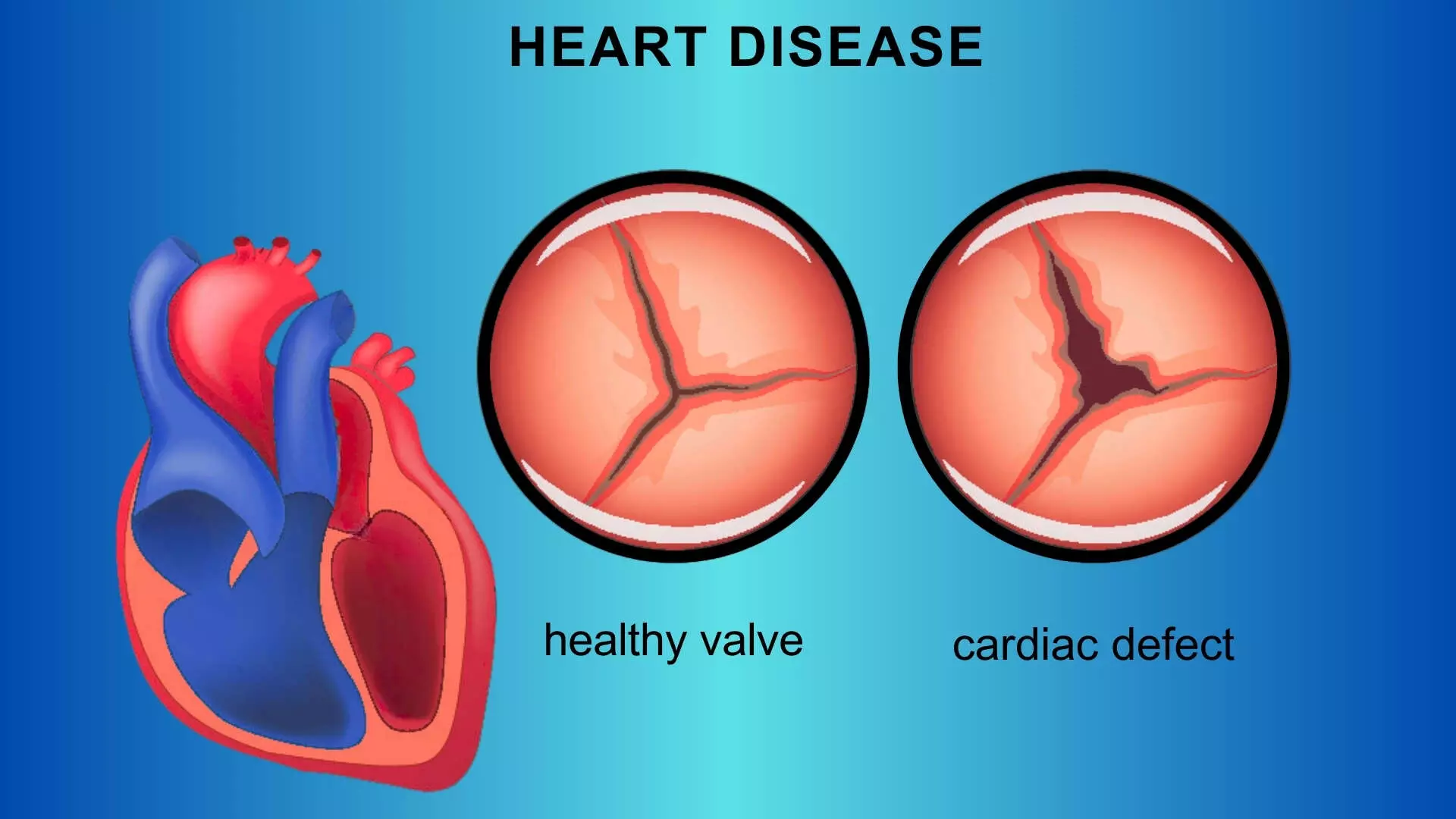TCT 2025: PREVUE-VALVE Study Indicates Burden of Valvular Heart Disease in Adults Aged 65-85 Years
- byDoctor News Daily Team
- 30 October, 2025
- 0 Comments
- 0 Mins

This news is covered by the Bureau present at the TCT Conference 2025, being held in San Francisco, USA. Among U.S. adults aged 65 to 85 years, 8.2% have moderate or greater valvular heart disease (VHD), and when including those with mild-to-moderate disease, nearly one in five are affected, translating to more than 10 million older Americans living with clinically significant valve disease. These findings from the PREVUE-VALVE study were presented by Dr David J. Cohen of the Cardiovascular Research Foundation, New York, at TCT 2025. The PREVUE-VALVE (Prevalence of Valvular Heart Disease in Older Americans) study is the first large-scale, population-representative investigation to define the true prevalence of valvular heart disease and its subtypes across the U.S. elderly population. Conducted between 2022 and 2025, this investigator-initiated study enrolled 3,000 adults aged 65 to 85 years using a decentralized recruitment model through CVS and Walgreens pharmacies. Study visits, including echocardiography and ECG, were performed at participants’ homes by mobile health teams, ensuring a broadly representative cohort. All echocardiograms were analyzed centrally at the Cardiovascular Research Foundation using ASE criteria. Participants with clinically significant findings were notified for medical follow-up. The study was powered to estimate the national prevalence of VHD with a ±2% precision and applied formal statistical weighting based on U.S. Census data to ensure demographic representativeness. The primary endpoint was the population prevalence of moderate or greater VHD, including aortic stenosis (AS), aortic regurgitation (AR), mitral regurgitation (MR), mitral stenosis (MS), and tricuspid regurgitation (TR). Secondary analyses assessed “clinically significant” VHD, which included mild-to-moderate regurgitant lesions due to their known prognostic relevance. Results showed an overall prevalence of moderate or greater VHD of 8.2% (95% CI 7.0–9.5%), increasing sharply with age—from 5.1% in those aged 65–69 to 14.7% in those aged 80–85. Moderate or greater TR (3.7%) and AS (3.1%) were the most common valve lesions, followed by MR (2.0%) and AR (0.7%). When expanded to include clinically significant VHD, prevalence rose to 18.4% (95% CI 16.7–20.2%), representing an estimated 10.6 million Americans aged 65–85. Women made up nearly two-thirds of all individuals with significant VHD. The absolute prevalence increased steeply with age and was highest among women aged 80–85. After adjusting for age and sex, Black adults had a lower prevalence of aortic valve disease compared with White adults, while no significant differences were observed among Hispanic participants. Using population projections, the investigators estimated that by 2060, the number of older Americans with moderate or greater VHD will increase by nearly 75%, reaching 8.2 million for moderate or greater disease and 14.4 million for clinically significant VHD, driven largely by growth in the 80–85-year-old population segment. Researchers emphasized that the findings likely underestimate the true disease burden, as individuals over 85 years and those with known symptomatic valve disease were excluded. Interestingly, they noted that PREVUE-VALVE demonstrates how decentralized research models can yield nationally representative cardiovascular data. Reference:David J. Cohen et al., Defining the Prevalence of Valvular Heart Disease in Older Americans: The PREVUE-VALVE Study, TCT Conference 2025, San Francisco. https://www.tctconference.com/ About the Study Presenter:David J. Cohen, MD, MSc, is Director of Clinical and Outcomes Research at the Cardiovascular Research Foundation (New York, NY) and Director of Academic Affairs at St. Francis Hospital (Roslyn, NY). Dr. Cohen is an interventional cardiologist with a focus on structural and valvular heart disease. His research focuses on the application of formal cost-effectiveness methodology to novel interventions for cardiovascular disease (CVD), the extension of traditional cardiovascular outcomes research to include patient-centered outcomes, and the development and evaluation of instruments for assessing CVD patients’ health status and preferences. Dr. Cohen has published more than 500 scientific articles and serves on the editorial boards of numerous journals.
Disclaimer: This website is designed for healthcare professionals and serves solely for informational purposes.
The content provided should not be interpreted as medical advice, diagnosis, treatment recommendations, prescriptions, or endorsements of specific medical practices. It is not a replacement for professional medical consultation or the expertise of a licensed healthcare provider.
Given the ever-evolving nature of medical science, we strive to keep our information accurate and up to date. However, we do not guarantee the completeness or accuracy of the content.
If you come across any inconsistencies, please reach out to us at
admin@doctornewsdaily.com.
We do not support or endorse medical opinions, treatments, or recommendations that contradict the advice of qualified healthcare professionals.
By using this website, you agree to our
Terms of Use,
Privacy Policy, and
Advertisement Policy.
For further details, please review our
Full Disclaimer.
Recent News
Japanese researchers suggest cheese consumption ma...
- 30 October, 2025
Obesity-linked cancer cases rising among young and...
- 30 October, 2025
Plant-based diets may reduce climate change and in...
- 30 October, 2025
Cutting Balloon Angioplasty Before Stenting Found...
- 30 October, 2025
Daily Newsletter
Get all the top stories from Blogs to keep track.


0 Comments
Post a comment
No comments yet. Be the first to comment!